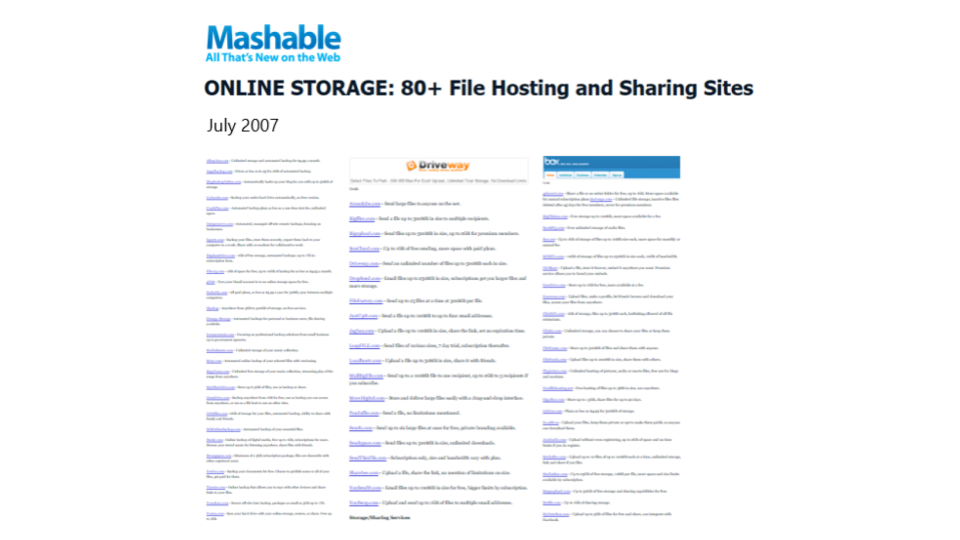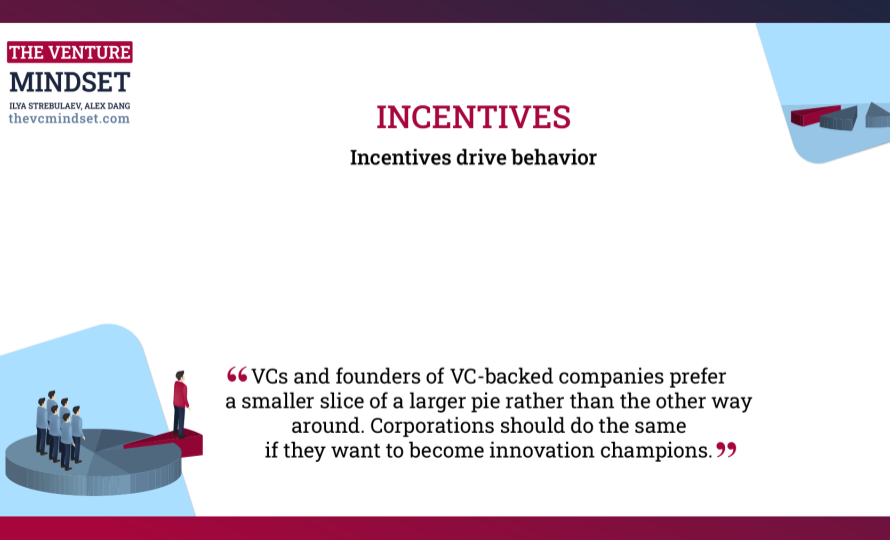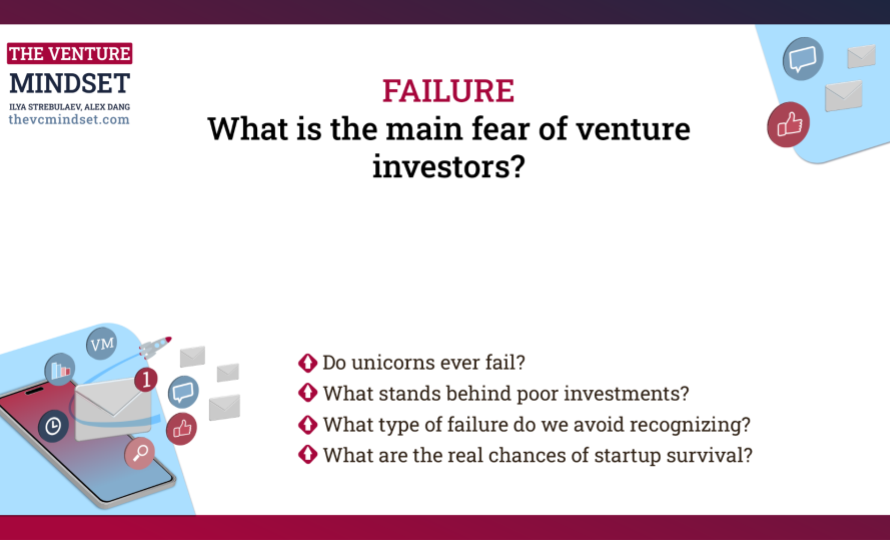Is the idea worth pursuing? Does this startup deserve your time? Should we invest, or should we pass? Typically, we’re not confronted with such pivotal decisions on a daily basis, as our lives are filled with routine tasks and responsibilities. However, when we venture into the realm of innovation, the stakes are significantly higher, and making these decisions becomes considerably more challenging. At this juncture, you need another mechanism utilized by venture investors—a strategy that guides us in navigating these complex choices. We call it …
PREPARED MIND
Luck exists, but lucky people are always prepared for it. As our research and interviews show conclusively, the common perception of venture capital investors as gamblers who make high-stakes decisions impulsively is far from the truth. In fact, acting on impulse, or “shooting from the hip,” can be a fatal error in the VC world and beyond.
So how do VCs manage to make seemingly instantaneous decisions after just one conversation with entrepreneurs or a glance through their pitch decks? The answer lies in their preparation. Facing an uncertain environment filled with many unknowns requires a mind that is thoroughly prepared. The prepared mind.
Receive The Venture Mindset newsletter first. Subscribe now
1. VCs: on gut investment decisions
Startup investors often make gut investment decisions. By “gut,” we mean that they don’t rely on sophisticated financial methods or extensive due diligence to come to a conclusion.
Almost half of all VCs—particularly those investing in early-stage startups, in IT, and on behalf of smaller VC firms—say they often make gut investment decisions. Even though late-stage investors rely less on their gut, it still plays a large role across all stages. However, if you focus just on the decision point, you will overlook the fact that VC investors come to that point really well prepared. What may seem like a one-second gut decision actually reflects hundreds of hours of preparatory work!

2. The Quote

Louis Pasteur, a giant of nineteenth-century science, summarized the prepared mind of scientists when he said during an 1854 lecture at the University of Lille, “In the fields of observation, chance fa¬vors only the prepared mind.”
What Pasteur implied was that what might appear as a serendipitous scientific discovery is often the culmination of years of dedicated study and persistence. The ‘Eureka’ moment, therefore, is not merely a stroke of luck but the result of many challenging days and sleepless nights.
This principle applies broadly, extending beyond scientific discoveries to decision-making in general. Trusting our intuition is valuable, but that trust should be grounded in the time and effort we’ve invested in researching a specific area. Only then does our ‘gut feeling’ become a reflection of deep understanding and preparation.
3. How do VCs rely on the prepared mind?
Many VC firms, such as Accel Partners, even call their approach “Prepared Mind.” Partners are constantly thinking about what the future will bring and then searching for companies that fit the thesis. Such preparedness helps Accel to back teams and ideas at very early stages.
Accel’s philosophy is clearly articulated on their website: “By the time we invest, our Prepared Mind approach ensures that we share the same commitment and conviction as our entrepreneurs.”

Greg McAdoo, an investor with Sequoia, made a big bet on Airbnb, but only after he spent months studying related businesses. Paul Graham, a cofounder of YC Accelerator, said about McAdoo, “Sequoia owes their investment in Airbnb very directly to Greg McAdoo. He may have been the only VC anywhere who understood Airbnb’s promise.”
4. From the classroom: Dropbox case study
In our Venture Mindset workshops, we illustrate the prepared mindset tool with the case study of Dropbox. In 2007, there were many online storage and file sharing tools. Each one of them was promising to revolutionize our everyday lives and enable us to say goodbye to flash drives and portable hard drives. There was a need. The world was waiting for the solution.
But how would one choose which candidate to invest in among so many? Why would a venture capitalist prefer one over another?

Here is what Sameer Gandhi, the early backer of Dropbox, said for this Stanford business case study co-authored by Ilya: “Within the first 30 minutes, I realized that of all the companies that I’d seen, this was the one that I actually felt was the one to invest in.”
To immediately recognize a promising startup, ask the right questions, and know what to pay attention to and what to ignore, one needs to have done a lot of work prior to the meeting. This is what VCs do. They invest time in advance to build their prepared mind and to apply it when the time comes.
You can read more about the Dropbox business case (co-authored by Ilya Strebulaev).
5. A peek into the book
So how does one start? We write about it in our book (available for pre-order). Meet with companies and entrepreneurs. Meet with companies and entrepreneurs. Read reports if any are available, but for new areas you will not find many. (And if you do find a lot of reports, then most likely the train has already left the station and you have arrived too late.) However, most importantly, recognize that just investing a large amount of time by itself won’t help you much. Contrary to popular belief, spending a lot of time on a topic may not translate into expertise or a prepared mind. Here is what we say in our book.
“So how do you train your mind? Well, we know what does not work. The common statement that you need 10,000 hours of practice to become an expert may not help you much when operating in a world of unknown unknowns. In fact, it might confine you to a cage where you know too much about too little. To recognize patterns, what you need is not necessarily 10,000 hours, but a 10,000-foot view.”
Final thought
When we described the concept of the prepared mind to someone with a computer science background, they immediately likened it to training a machine learning algorithm. Despite the limitations of such a comparison, the analogy is apt. VCs train their mind to recognize patterns, so that they can see what makes some ideas more promising than others. This takes time, much as it takes time to enable an algorithm to see the difference between a cute chihuahua and a tasty muffin.

As with AI algorithms, there is a risk of bias. Any prepared mind may become a biased mind. We will talk more about biases in future newsletters.
For now, start preparing your mind. Pick any area of interest and dive into it, and you may end up being the first to clearly see the next Dropbox, Airbnb, or great scientific advance.
Stay venture-minded!
Ilya Strebulaev and Alex Dang
P.S. If you missed the previous edition of the newsletter about Patience, you can read it here.


